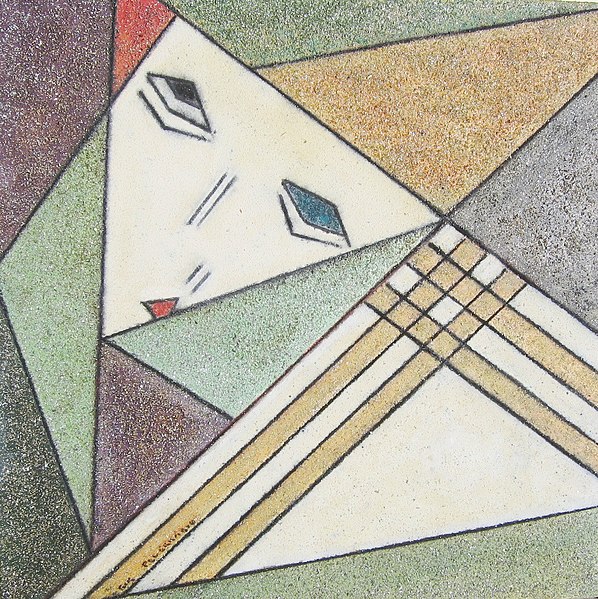Twenty-five years ago, my husband and I moved to a home situated on 1/4-acre of unkempt land. When I attempted to fashion some flowerbeds that first spring, I discovered the soil was mostly hard-packed clay. Clay soil has many nutrients but it's almost impossible to get plants to grow--at least the plants I wanted to grow. It becomes slippery when it's wet and packs hard as cement when it dries out.
I decided to begin "composting in place," which meant digging our kitchen garbage (including coffee grounds and filters) directly into the ground. About twice a week I would take a full one-gallon can to the would-be-garden areas, shovel and pick-ax down a foot or so, dump in the veggie scraps and coffee grounds and firmly tamp dirt over the soon-to-be-compost.
The next spring, having done this composting for almost a year, I discovered the two large areas that received the compost material now contained loamy, fertile planting soil! Oh the joy! Off to the plant nursery I went!
And so it continued for the next 10 years. Composting in place over and over and over again (and yes, visiting the plant nurseries over and over again!). Trees, flowers, vegetable garden (and I) all thrived.
As the plants grew and I reconnected more and more with the earth, as I worked in the gardens I came to love so much, I began to dwell on life cycles and the ways in which we humans impact nature (most often to its detriment and, in turn, to ours).
It was during this time that I began to think long, deep thoughts about my own life cycle. I felt certain my demise was a few decades away, however, during the previous two decades three beloved family members had died and, according to their wishes, were cremated.
I hadn't done any research about the cremation process. At that time, it simply seemed a valid and sensible way to dispose of a lifeless body; and the idea that loved ones could scatter the ashes in meaningful places (as we did) seemed touching and comforting.
However, as the years rolled by and the plot of land that had once been so sterile and weed-choked, bloomed, blossomed and burgeoned, I decided that when I died I wanted to be buried on that land. I knew, from research, that that is legal but one has to receive the approval of the contiguous homeowners (yes, I understand why, but won't go into that detail here!).
The marriage didn't bloom and grow as profusely as the flowers and in 2001 I left that home and husband and all the beauty both once held for me. What did not leave me, as macabre as it may seem, was the thought of being "composted in place" when I die.
During the following 12 years of apartment living I always had at least a dozen pots on the deck, all overflowing with flowers (and even, in some cases, small trees!). However, I could not compost in place and, difficult as it was for me to do, I put kitchen scraps down the disposal.
Luckily, fortunately, blessedly, for the past three years I've lived in a home with a small front and back gardening area. This property, even though on a smaller scale, had exactly the same uncared-for grounds as the former home: patches of weeds and clay soil.
It's taken some sweat and toil on the part of this eight-decades-old person, some willing labor from my sons and daughters-in-law, many trips to the nursery and, yes, three years of composting in place, but the front and back yards are finally becoming the mini-showplaces I envisioned.
Now, back to the idea of being interred in the soil and among the flowers of my home.
In a poem by Patty Tana, titled "Post Humus," she speaks of scattering her ashes in her beloved garden and of red, ripe tomatoes (my favorite!). I've loved the glee and lilt of Tana's piece of prose ever since I discovered it several years ago. I've taken the liberty of replacing her name with mine in the copy, below:
POST HUMUS
Scatter my ashes in my garden
so I can be near my loves.
Say a few honest words,
sing a gentle song,
join hands in a circle of flesh.
Please tell some stories
about me making you laugh.
I love to make you laugh.
When I've had time to settle
and green gathers into buds,
remember I love blossoms
bursting in spring.
As the season ripens
remember my persistent passion.
And if you come in my garden
on an August afternoon,
pluck a bright red globe,
let juice run down your chin
and the seeds stick to your cheek.
When I'm dead I want folks to smile
and say, "That Marlene, she sure is
some tomato!"
James Lendal Basford wrote in Seven Seventy Seven Sensations (1897), "We all feed from Mother Nature's breast until weaned by Death." I like the idea of giving back to Mother Nature.
In a 2011 TED Talk, designers Jae Rhim and Mike Ma spoke of "The Infinity Burial Suit" that turns dead bodies into clean compost. These suits are now being sold and the more I read about it, the more certain I am that I want to be on the A-list for one! I may not "land" in my own garden, but wherever it is, if I'm composting naturally, I'll be giving back to Mother Nature.
While I thought that I was learning how to live,
I was learning how to die.
~Leonardo DaVinci
Note in the last paragraph "The Infinity Burial Suit" and information about clean compost are both linked for in depth reading.
| 


